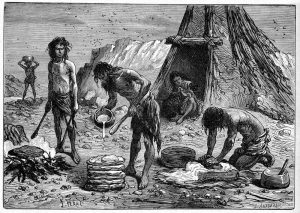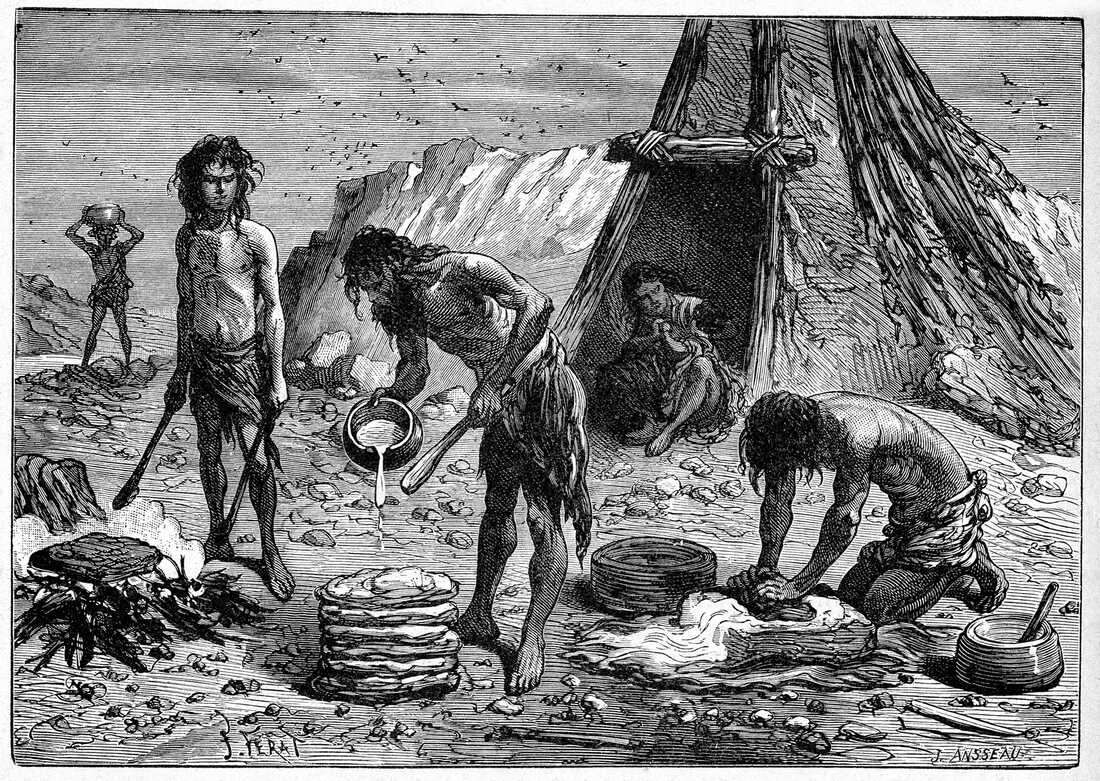Introduction:
From Flames to Societies: The Evolutionary Advantages of Cooking Food” takes you on an enthralling journey through time to unravel the remarkable impact of cooking on human evolution. The discovery of cooking with fire marked a significant turning point in our ancestors’ development, leading to changes in anatomy, brain size, and social structures. This article delves into the evolutionary advantages of cooking food, shedding light on how this revolutionary practice laid the foundation for the emergence of complex human societies.
The Discovery of Cooking: A Game-Changer
The discovery of cooking with fire revolutionized the way our ancestors consumed food. This transformative act set the stage for numerous evolutionary advantages that would shape the course of human history.
Enhanced Nutritional Value
Cooking food enhanced its nutritional value, making it easier for our ancestors to extract essential nutrients from various sources. This improvement in nutrient absorption contributed to their overall health and well-being.
Brain Growth and Cognitive Development
The adoption of cooked food played a pivotal role in the growth of our ancestors’ brains. Uncover how this increased caloric intake and nutrient availability supported the expansion of brain size, leading to advanced cognitive development.

Shorter Digestive Tracts
Cooked food is easier to digest, which led to a reduction in our ancestors’ digestive tract size. This change freed up energy resources, allowing for greater allocation of energy towards other vital functions.
Social Implications: The Hearth as a Gathering Place
The act of cooking with fire brought early humans together around the hearth. This communal gathering place fostered social bonding and cooperation, contributing to the formation of close-knit communities.
Preserving Food and Seasonal Variability
Cooking allowed our ancestors to preserve food, reducing dependency on seasonal variations and ensuring a more stable food supply. This increased food security further supported population growth and societal stability.
Shift in Food Preferences and Culinary Traditions
The introduction of cooking expanded our ancestors’ culinary possibilities. As they experimented with various cooking techniques, it led to the development of diverse food preferences and culinary traditions.
Socioeconomic Impacts
Cooking food altered the dynamics of early societies. Explore how the time saved from cooking allowed our ancestors to engage in other activities, leading to the emergence of specialized roles and the development of socioeconomic systems.
From Cooking Pots to Civilization
The evolutionary advantages of cooking laid the groundwork for the emergence of complex human societies. Discover how the transformative practice of cooking paved the way for the development of civilizations.
Conclusion
From Flames to Societies: The Evolutionary Advantages of Cooking Food” unveils the profound impact of cooking on human evolution. The advantages of enhanced nutrition, brain growth, and social bonding, all stemming from the discovery of cooking with fire, played a crucial role in shaping the course of human history. As we reflect on this evolutionary journey, we gain a deeper appreciation for the importance of cooking in the development of human societies and the far-reaching implications it continues to have in our lives today.











